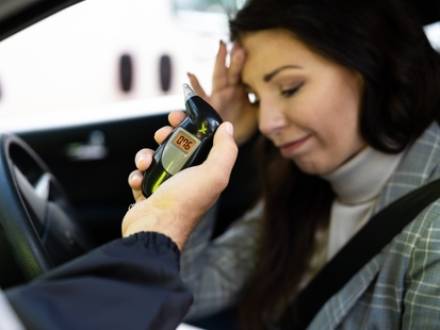Could Your Job Result in a Falsely High BAC?
 Breathalyzers can be adversely affected by many different substances and factors. One of those happens to be your profession. People who routinely work with lacquer, paint remover, cement, cleaning fluids, varnish, oil-based paint, gasoline, and other highly volatile organic compounds (VOC chemicals) can retain sufficient fumes in their breath to cause a false positive on a breathalyzer.
Breathalyzers can be adversely affected by many different substances and factors. One of those happens to be your profession. People who routinely work with lacquer, paint remover, cement, cleaning fluids, varnish, oil-based paint, gasoline, and other highly volatile organic compounds (VOC chemicals) can retain sufficient fumes in their breath to cause a false positive on a breathalyzer.
Breathalyzer machines are unable to distinguish between alcohol and these compounds, which are often a part of a person’s job. If you paint homes for a living, varnish cabinets, work at a dry-cleaning shop, are a pipefitter, a service station attendant, or any number of other similar jobs, you may have registered a falsely high reading on a BAC test and were subsequently arrested and charged with DUI.
These are serious charges with both short and long-term repercussions in the state of Maryland. If you are facing DUI charges, it is important that you speak to an experienced Silver Spring, MD DUI lawyer as quickly as possible. Your attorney will begin building a solid defense on your behalf and can guide you through the DUI administrative and criminal processes as well.
What is Non-Specificity Regarding Breathalyzer Results?
A breathalyzer machine has the potential to falsely report any of the hundreds of chemical compounds, reading them as "alcohol." This means the breathalyzer is not always specific in its detection of alcohol. Some of the chemical compounds that can be read as alcohol include:
- Workers who are in regular contact with methyl ethyl ketone, used in cement, adhesives, cleaning fluids, paint removers, lacquers, and celluloid, were found to have higher BAC readings when drinking the same amount of alcohol as those who were not exposed.
- Toluene is another compound found in glues, varnishes, lacquers, and paints, and can result in falsely high BAC readings.
- The fumes from isopropanol, usually known as rubbing alcohol, can be inhaled or absorbed through the skin, resulting in elevated BAC readings.
Researchers performed tests on a professional painter exposed to lacquer fumes. In the first test, the painter sprayed paint in a room for 20 minutes while wearing a protective mask. His blood and breath were then tested. While the blood test showed no presence of alcohol, the Intoxilyzer 5000 read his BAC as .075 percent, which is almost at the legal limit.
Another study found that fumes from some plastics and automotive products containing diethyl ether can be inhaled and detected as alcohol by a breathalyzer machine. Two subjects were exposed to diethyl ether vapor for an hour.
Subsequent breathalyzer tests showed BAC readings of 0.4 and 0.1 in one subject (far above the legal limit of 0.08 percent). The high BAC readings lasted for three hours after the exposure. The other subject had lower BAC readings that only lasted an hour after exposure, but his readings still showed the presence of alcohol when there was none.
What Are Other Factors That Affect BAC Readings?
Factors such as height, weight, age, and gender can significantly affect BAC levels. It is not just the number of drinks consumed but also how quickly they are consumed and whether the individual was also drinking water. What a person eats before drinking can impact BAC, as can many medications, including aspirin and ibuprofen.
Carbonated drinks increase the rate at which alcohol passes through the stomach, leading to a higher BAC. Those with more muscle mass and higher body weight will typically have a lower BAC than those with less muscle mass and lower body weight when both drink the same drinks within the same time frame. Lack of sleep can reduce tolerance to alcohol, which can result in impairment at a lower BAC level. Any illnesses or prescription medications can also affect BAC levels.
Contact a Montgomery County, MD DUI Lawyer
If you are facing DUI charges, you should immediately contact a Silver Spring, MD DUI attorney from The Law Offices of Gerstenfield & Demirji, PC.. Our attorneys are compassionate and experienced, aggressive when necessary, and have excellent relationships with local prosecutors. We are available 24/7 and fluent in Arabic and Spanish. Call 301-589-9500 to schedule your free consultation.














